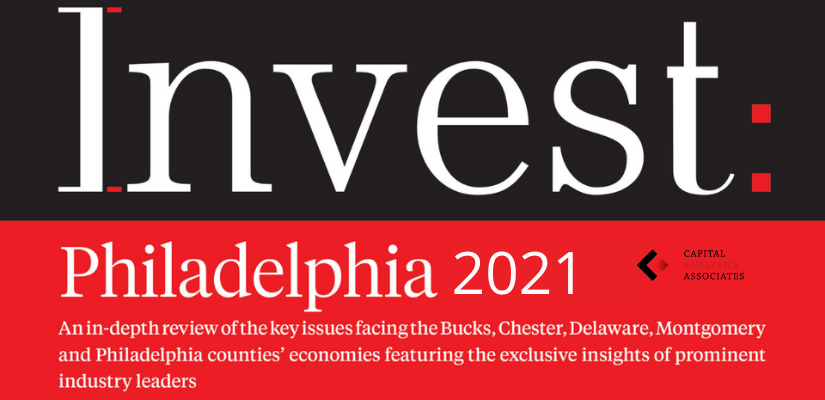Q&A with Burt Piper, PharmD, FACHE, CEO of Roxborough Memorial Hospital

Roxborough Memorial Hospital opened its doors in 1890. Since that time, it has served the medical and healthcare needs of northwest Philadelphia. In an interview with Invest: Philadelphia, CEO Burton Piper shared his hospital’s adaptations to the COVID environment, priorities going forward and outlook for the industry.
What are your thoughts on telehealth?
Roxborough has historically utilized telehealth to a much lesser degree. The federal government has made it easier for us to expand telehealth services as they have allowed healthcare professionals to bill for telehealth visits. There were several places in the United States and companies that were working on telehealth processes pre-pandemic and public acceptance has been increasing. There were also billing issues. COVID-19 forced the government and insurers to accelerate change and improve Medicare payments. We saw a cultural shift during the pandemic as well. It’s still a preference to see healthcare providers face-to-face, but telehealth has become a more acceptable platform.
There were already some inroads made for telehealth monitoring, such as diabetic monitoring and weight monitoring, but I believe the pandemic lit the fire for telehealth. I see it as something that’s going to continue to develop over time. With the utilization of telemedicine, we’ll be able to provide better access to care to rural areas. I think these technologies will expand and become more robust as we move forward.
How does Roxborough ensure a high level of safety and care?
We’ve seen an enhancement of protocols over the past year. We’ve been using data to determine policy and improve processes. Additionally, we have a flash meeting every morning at 9 a.m. In this meeting, all leadership are briefed on things that are happening that day. That communication tool is very helpful. It makes leadership aware of operational matters. We also share safety stories, and ways we can improve patient care.
How does Roxborough actively promote patient confidence?
At Roxborough, we did see a decrease in ER visits and surgeries in March 2020. Since that time, our volumes have stabilized, and we are close to pre-pandemic levels. We advertised to the public in print and other types of media. Signs were displayed throughout the hospital announcing the need for, and our commitment to, safety. We also have messages and videos on our website to inform the public. We have ensured appropriate distancing in waiting and clinical areas. We are doing everything we can to foster a safe environment for patients. We constantly work with our staff to ensure they’re adhering to safety protocols. We’ve been making sure we’re equipped with the right personal-protective equipment and educate staff continually on best practices. We do the same with our patients.
What are your top priorities going forward?
Our top priority is ensuring that every healthcare professional, who is willing to be vaccinated, is afforded that opportunity. Our focus moving forward is to continue enhancing and building service lines to address community needs, and to develop our cardiology program and our surgical program to make sure that its services are broad and excellent. We are proud to offer patients robotic surgery using the da Vinci surgical system.
The neighborhood in Roxborough is very dedicated to our hospital. There are other hospitals and health systems in Philadelphia that are very high-quality, and we are in that caliber as well. We’re working to ensure that we have the medical services necessary to treat the majority of patients.
We have launched some women’s health initiatives too. We continue to work very closely with the Philadelphia College of Medicine and Roxborough’s College of Nursing to help in training students for positions. The demand for nurses is high, so we’ve started a non-traditional program at Roxborough’s College of Nursing so that people who are currently working can obtain a nursing degree. As many of our nurses retire, we want to ensure that we have a good backfill of individuals coming into the nursing profession.
What is your outlook for the sector?
COVID-19 is difficult for a lot of health systems around the nation. Hopefully, with appropriate government intervention, hospitals will weather this storm. We’re probably going to continue to see mergers and consolidations, which has been happening for several years. I think we’ll see a greater focus on primary care as we move forward, as it’s important to take care of problems at a basic level before they require hospitalization.
We’re continuing to see drug development as well. Each year, a greater number of drug approvals come onto the market. According to a study in the Journal of Family Medicine, Primary Care, “a notable increase in the number of drug approvals per year was also observed between 2000 and 2018. An average of 23 NMEs were approved each year from 2000 to 2010, but that number jumped to 35 in 2011 and has been increasing ever since, reaching 59 in 2018.” 1
The pandemic may bring with it the benefit of helping us mitigate some of the issues we’ve had in the past with infectious disease by adhering to hand sanitation and social distancing.
- Batta, Angelika, Bhupinder Singh Kalra, and Raj Khirasaria. “Trends in FDA drug approvals over last 2 decades: An observational study.” J. Fam. Med. Primary Care. 9; 105–114 (2020).


